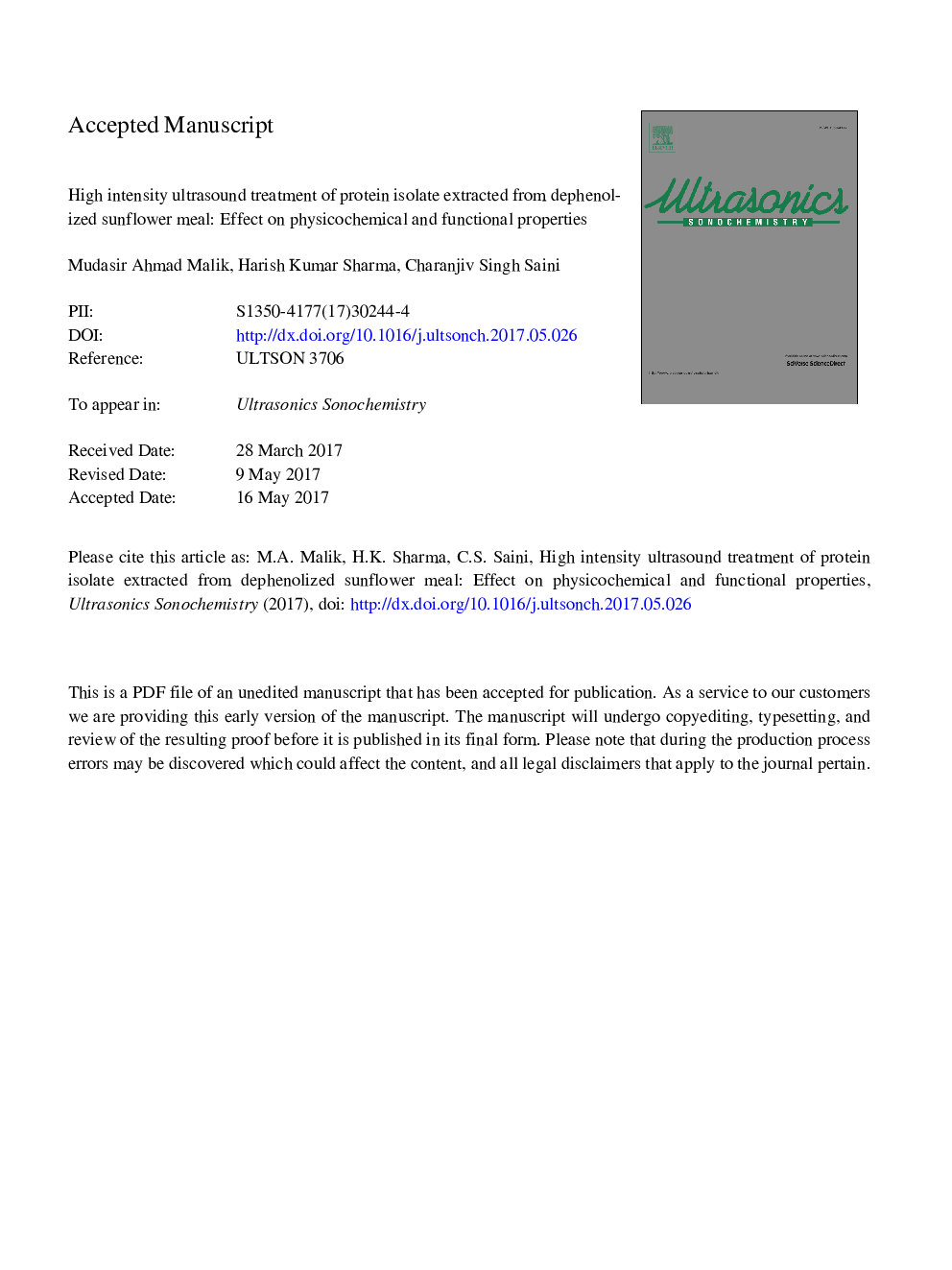| Article ID | Journal | Published Year | Pages | File Type |
|---|---|---|---|---|
| 5144577 | Ultrasonics Sonochemistry | 2017 | 37 Pages |
Abstract
The influence of high intensity ultrasound (HIUS) on physicochemical and functional properties of sunflower protein isolates was investigated. Protein solutions (10% w/v) were treated with ultrasound probe (20Â kHz) and ultrasound bath (40Â kHz) for 5, 10, 20 and 30Â min. Thermal stability of protein isolates was reduced as indicated by differential scanning calorimetry. Minimum thermal stability was observed at 20Â min of sonication and increased further with increase in treatment time indicating aggregation at prolonged sonication. SDS-PAGE profile of proteins showed a significant reduction in molecular weight. Further, surface hydrophobicity and sulfhydryl content increased after HIUS treatment indicating partial unfolding of proteins and reduction in the intermolecular interactions. The particle size analysis showed that HIUS treatment reduced the particle size. Less turbid solution were observed largely due to reduction in particle size. HIUS decreased the available lysine content in protein isolates. Solubility, emulsifying capacity, emulsion stability, foaming capacity, foam stability and oil binding capacity were improved significantly, while as, water binding capacity was decreased. The effect of HIUS on physicochemical and functional properties of sunflower protein isolates was more pronounced in probe sonication rather than bath sonication. Protein isolates with improved functional properties can be obtained using high intensity ultrasound technology.
Related Topics
Physical Sciences and Engineering
Chemistry
Chemistry (General)
Authors
Mudasir Ahmad Malik, Harish Kumar Sharma, Charanjiv Singh Saini,
